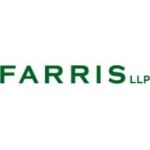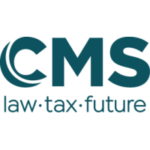-
Does your jurisdiction have a class action or collective redress mechanism? If so, please describe the mechanism and outline the principal sources of law and regulation and its overarching impact on the conduct of class actions in your jurisdiction.
-
What is the history of the development of the class actions/collective redress mechanism and its policy basis in your jurisdiction?
-
What is the frequency of class actions brought in your jurisdiction, in terms of number of cases over the years and/or comparison to other types of litigation?
-
Are there certain courts or types of claims that are most prevalent (for example competition vs commercial litigation generally)?
-
What is the definition of 'class action' or 'collective redress' relevant to your jurisdiction?
-
What are the general 'triggers' for commencement of a class action or collective redress in your jurisdiction from a factual perspective?
-
How do class actions or collective redress proceedings typically interact with regulatory enforcement findings? e.g. competition or financial regulators?
-
What types of conduct and causes of action can be relied upon as the basis for a class action or collective redress mechanism?
-
Are there any limitations of types of claims that may be brought on a collective basis?
-
Who may bring class action or collective redress proceeding? (e.g. qualified entities, consumers etc)
-
Are there any limits on the nationality or domicile of claimants in class actions or collective redress proceedings?
-
Are there any limitations on size or type of class?
-
Are there any requirements or prohibitions in sourcing this class?
-
Which courts deal with class actions or collective redress proceedings?
-
Are there any jurisdictional obstacles to class actions or collective redress proceedings?
-
Does your jurisdiction adopt an “opt in” or “opt out” mechanism?
-
What is required (i.e. procedural formalities) in order to start a class action or collective redress claim?
-
What other mandatory procedural requirements apply to these types of matters?
-
Are normal civil procedure rules applied to these proceedings or a special set of rules adopted for this purpose?
-
How long do these cases typically run for?
-
What remedies are available to claimants in class action or collective redress proceedings?
-
Are punitive or exemplary damages available for class actions or collective redress proceedings?
-
Is a judge or multiple judges assigned to these cases?
-
Are class actions or collective redress proceedings subject to juries? If so, what is the role of juries?
-
What is the measure of damages for class actions or collective redress proceedings?
-
Is there any mechanism for the collective settlement of class actions or collective redress proceedings?
-
Is there any judicial oversight for settlements of class actions or collective redress mechanisms?
-
What are the top three emerging business risks that are the focus of class action or collective redress litigation?
-
What trends in litigation are evident in the last three years in your jurisdiction in respect of class actions?
-
Where do you foresee the most significant legal development in the next 12 months in respect of collective redress and class actions?
-
Are class actions or collective redress proceedings being brought for ‘ESG’ matters? If so, how are those claims being framed?
-
Are there any proposals for the reform of class actions or collective redress proceedings? If so, what are those proposals?
Nigeria: Class Actions
This country-specific Q&A provides an overview of Class Actions laws and regulations applicable in Nigeria.





















